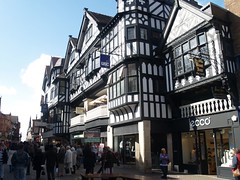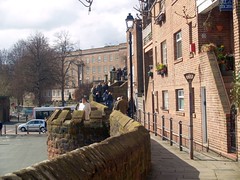Picked up from the elearning mailing list – it looks like it might be an interesting day and a useful group to know about. It is being organised by the Learning and Teaching Institute at Chester:
The University of Chester in collaboration with the University of Hertfordshire is pleased to announce the second meeting of the Podcasting for Pedagogic Purposes SIG group, on 17th April 2008 at the University of Hertfordshire.
The day is designed to be as practical as possible (you can see the draft programme on our wiki (http://podcastingforpp.pbwiki.com/April%20event
invite key podcast08).
Please email DianeTaska (d.taska@chester.ac.uk) to book your place. There will be a maximum of 50 places, allocated on a ‘first come first served’
basis. There will be a maximum of 2 people from any 1 institution.
As this is a SIG group, and we are trying to build up a database of ‘good practice’ we would like everyone who attends the day to contribute an
‘artefact’: This could be
A sample podcast
A pdf/word document on ‘how to’
A poster on podcasting (that may have been produced for other events – let’s not re-invent the wheel)
The novices could produce a word document on ‘how they would like to use a podcast’.
http://www.chester.ac.uk/…d_teaching.html








